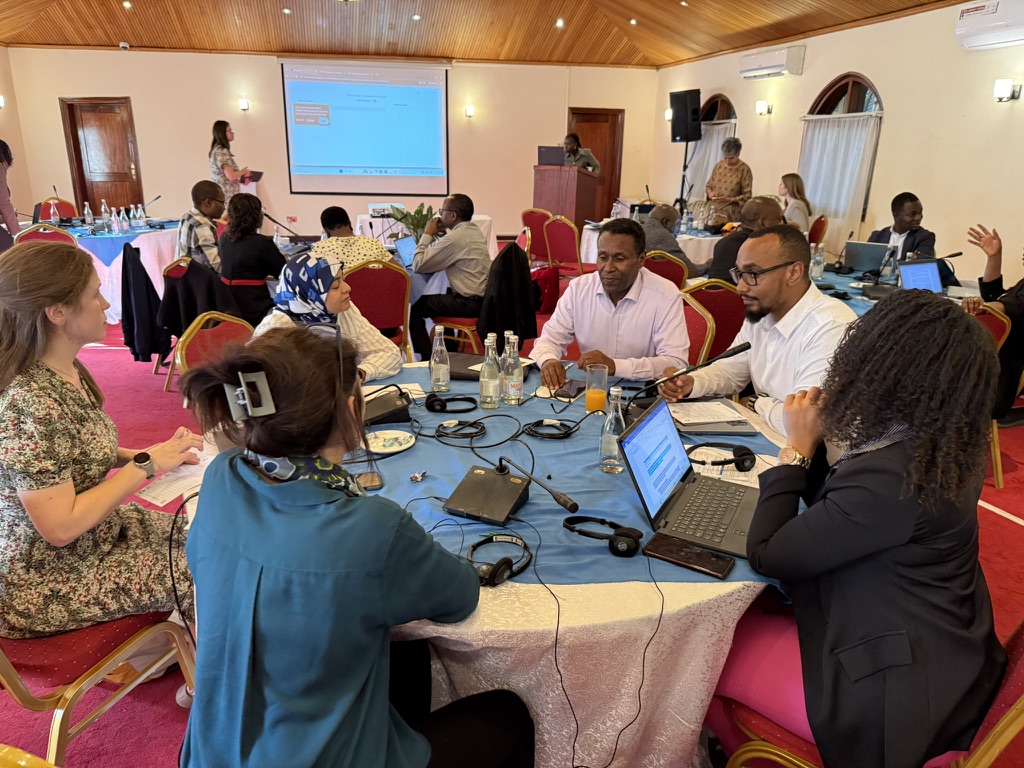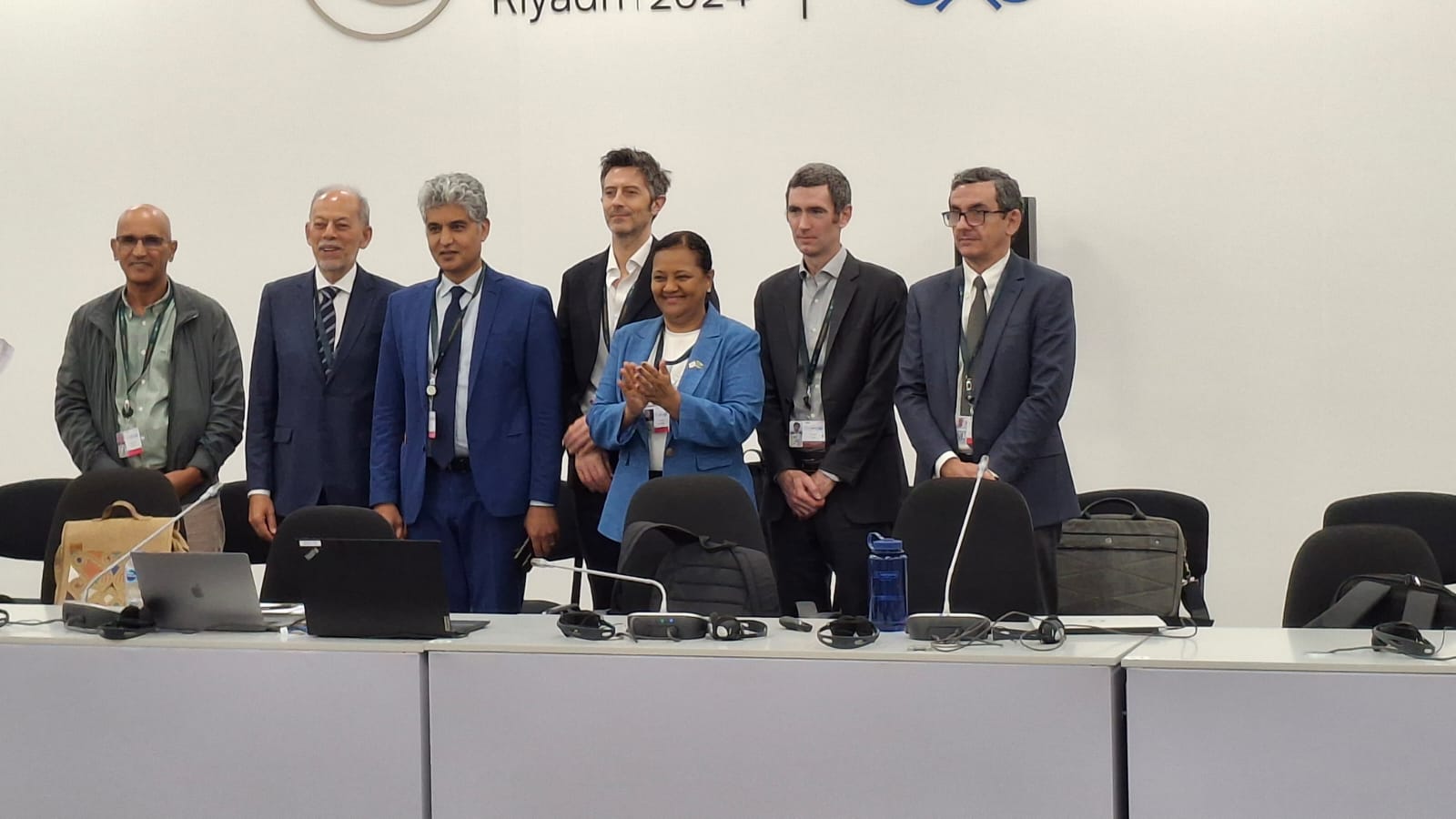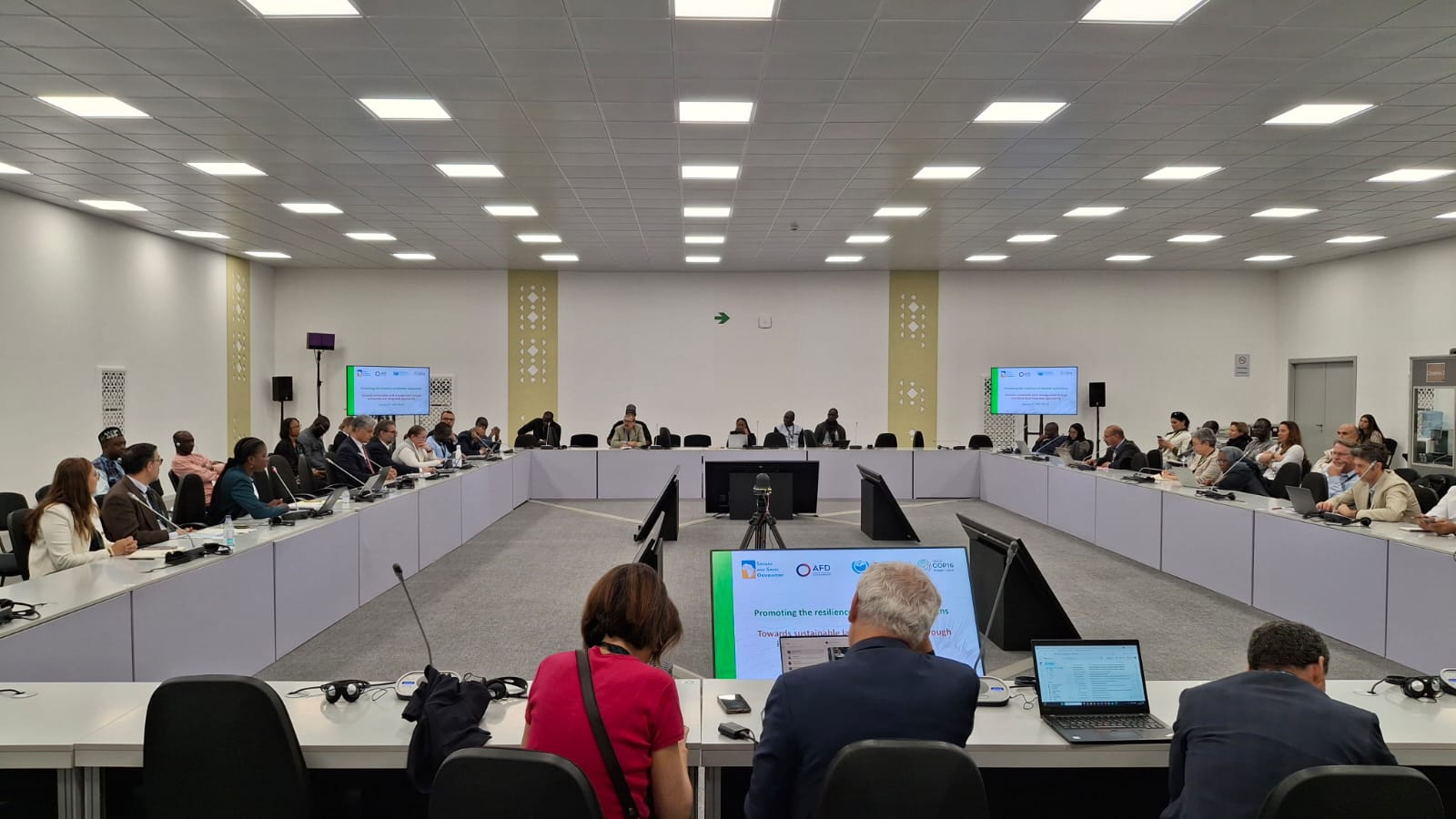
Enhancing direct access for localized adaptation in Africa: A milestone workshop, Nairobi, Kenya, December 4-5, 2024
Enhancing direct access for locally led adaptation in Africa: A milestone…
The third panel on "Land restoration" is chaired by Mr Antoine Cornet, Director of the Center for International Actions and Achievements (CARI) and member of the CSFD. He states that land degradation is considered to be a major impediment to development and a global and local challenge. He emphasizes the immediate need of preserving natural, human and know-how capital, stressing the importance of an environmental and socio-economic benefits assessment.
Mr. Luc Gnacadja, former Executive Secretary of the UNCCD and Chairman of the OSS SOC, takes the floor to call for a paradigm shift to restore our agricultural lands. He takes the example of Benin to show the impact of land degradation, and presents concrete figures related to deforestation, biodiversity, agricultural productivity and the affected population.
Mr. Jean Luc Chotte, President of the French Scientific Committee on Desertification - CSFD France, makes a call for action in the right place, on the right scale, at the right time, for the best (co)benefits. He also reminds the importance of national and local approaches to meet the needs of the populations.
The contribution of Dr. Sakhoudia Thiam, SNRM expert, gives an overview of the Sahel ecosystems degradation. Head of the Research and Development department - PAGGW, highlights the benefits of land restoration for sustainable food production, resilience improvement and disaster risk reduction, under the Great Green Wall Initiative.
According to Mr. Philippe Ankers, FAO Tunisia Representative and Coordinator of the Regional Office for North Africa, a large part of climate change relates to the current economic growth system. He puts forward inclusive and consistent national plans of action such as promoting nature-based solutions and building resilience to vulnerabilities, shocks and stresses.
Mr. Hédi Chebili, Director General of the Environment and the Quality of Life, Tunisia, closes the session to shed light on the impact of climate change in Tunisia. He tells about the national adaptation plan being developed and which is based on strategies and policies, giving importance to water security and urban resilience.
The session is moderated by Mrs. Fatou Mar, OSS Land Department Coordinator, giving the floor to the panelists, making clarifications, anecdotes and developing remarks that bring hope for the restoration of African lands.

Enhancing direct access for locally led adaptation in Africa: A milestone…

“Drought…

Promoting…